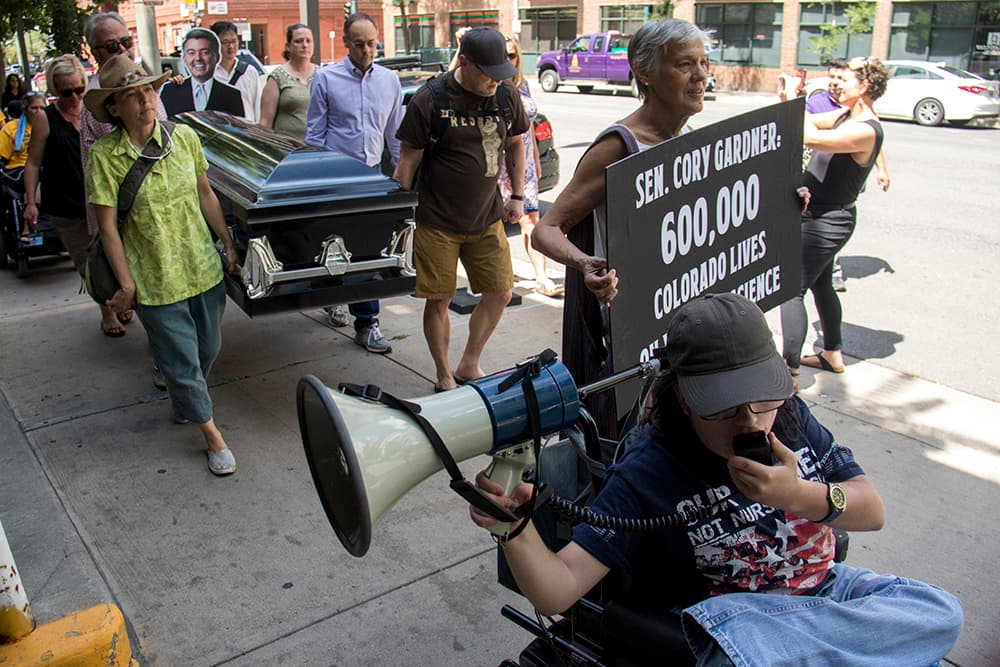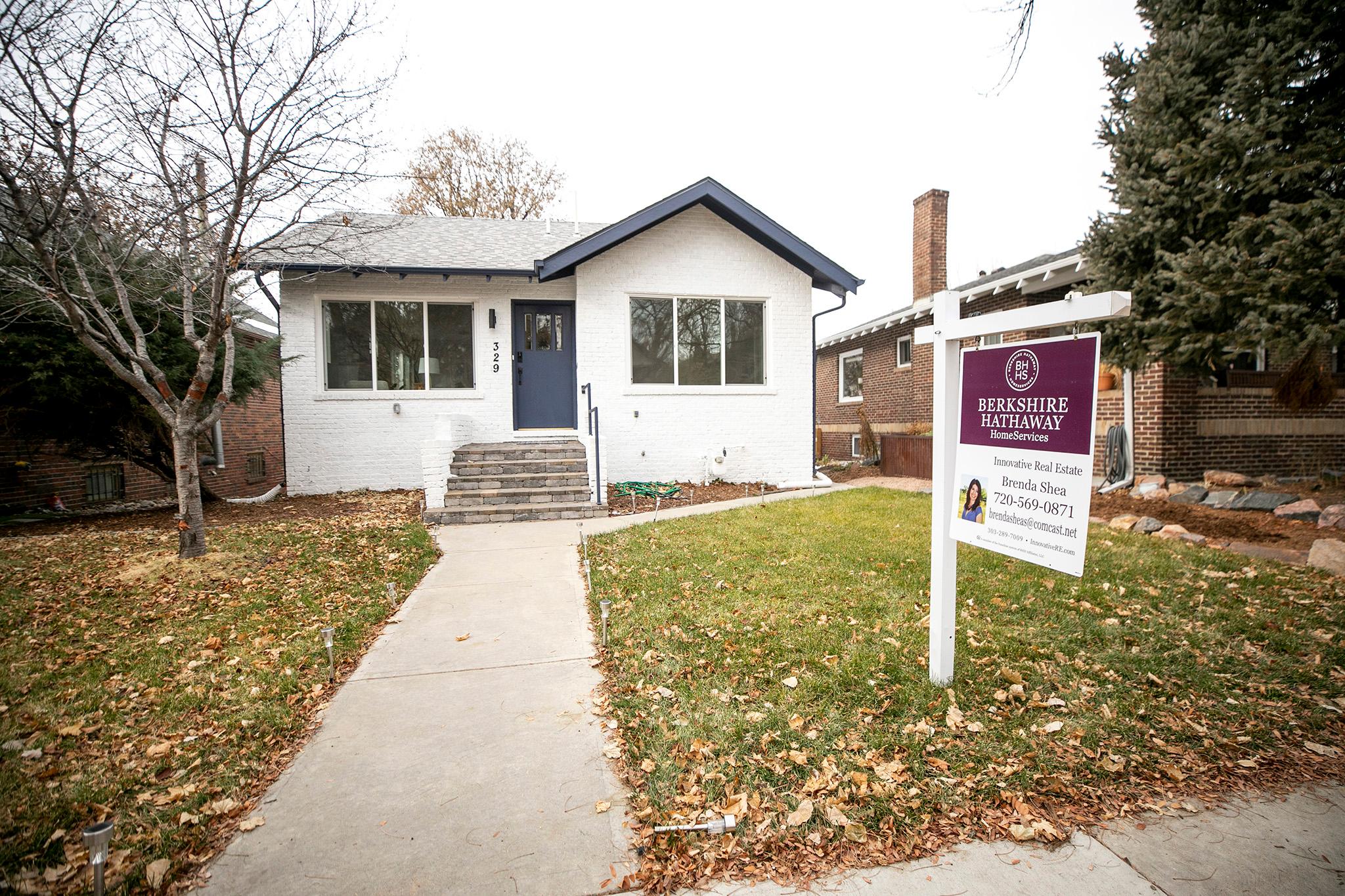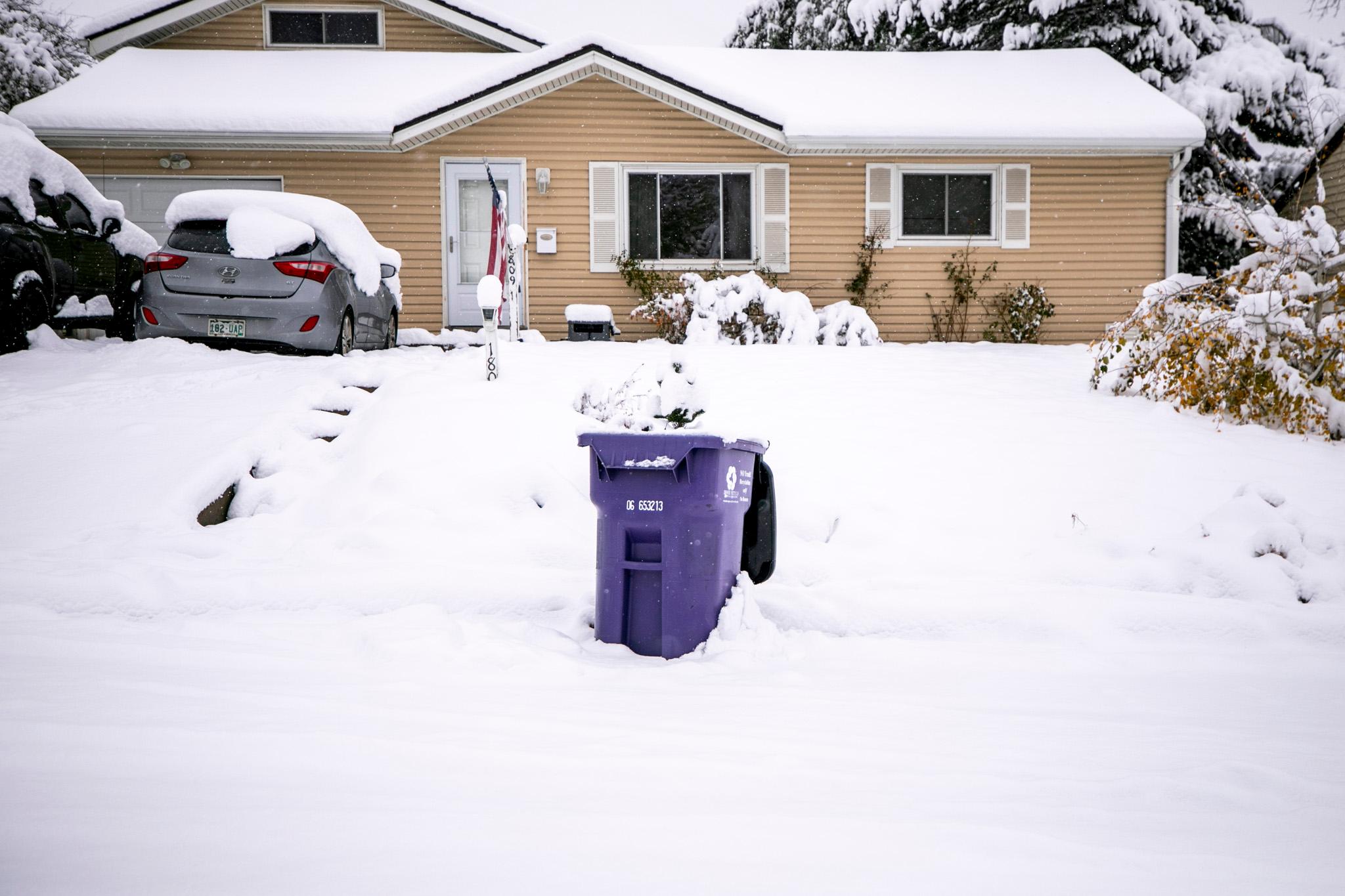
Michael Bennet was a no and Cory Gardner a yes on the Republican's last, best chance to repeal Obamacare in the near term.
The Health Care Freedom Act was the third iteration this week of Senate Republicans' efforts to repeal the Affordable Care Act. The so-called "Skinny Repeal" got rid of the requirement that individuals purchase health insurance and that large employers offer coverage to their workers, but it included no cuts to Medicaid.
This was a bill that many Republicans wanted to pass but did not want to see become law. Analysts believed it would wreck havoc on the individual insurance market, but the goal was to get a bill to conference committee with House Republicans to keep the process moving forward. Some Republican senators sought reassurance from leadership in the House that this bill would not become law -- as a condition of their yes vote.
Gardner claimed repeatedly to be undecided in the weeks leading up to the vote, during which activists, many of them people with disabilities, protested the senator everywhere they could. Colorado's senators stuck with their parties in the early morning vote, as they have throughout this process.
The drama and suspense came from Sen. John McCain of Arizona, who flew back to Washington, D.C. this week after surgery to remove a brain tumor and immediately enraged liberals by voting yes on a key procedural vote and yes on earlier versions of the Republican plan, which failed by wider margins.
And then tonight, he voted no.
You'll want the sound on to hear the reaction when McCain votes.
Skinny Repeal went down 49-51.
Bennet said in a statement that people should not become complacent with this victory.
"Over the last several months, Americans all over the country and Coloradans in my home state have relentlessly raised their voices to defeat this disgraceful health care bill," Bennet said. "While this is a win for tonight, we cannot be complacent. There are millions of people who still need us to fix our broken health care system. Now is the time to work together to increase competition, affordability and transparency; to lower costs and improve quality; and to craft a bill that is responsive to the needs of Americans."
It was a call for the kind of bipartisan, pragmatic law-making that is nearly impossible to conceive of in the current political environment but that will be necessary to address problems like the withdrawal of insurers from the health care exchange, particularly in rural areas. There are 14 Colorado counties with just one insurance company on the exchange, and some people are stuck paying high premiums for high-deductible plans that still leave them on the hook for thousands of dollars when they need care.
Earlier in this process, when a different Republican bill was headed for failure, Gardner warned Democrats against "spiking the football" when problems remain with the ACA.
President Donald Trump took to Twitter early Friday to repeat his threat to let Obamacare collapse.
Gardner voted for straight repeal in 2015, a bill that then-President Barack Obama vetoed, so to vote against repeal now would have cast the sincerity of that earlier vote into question and angered his base -- while being unlikely to win over more liberal voters.
Gardner isn't up for re-election until 2020, and perhaps voters will have moved on to other issues by then. But health care has been a galvanizing issue for the people who see themselves as the Resistance to this administration. They'll do everything they can to make sure this issue dogs Gardner into the future.
Here's the statement from ADAPT, which has been leading the protests on health care.
"Millions of people with disabilities across this great nation were dealt a huge reprieve (overnight) with Senators McCain, Collins and Murkowski joining all Democrats in voting down the Senate healthcare repeal bill," the disability rights activists said. "We are extremely dissapointed with Senator Gardner's vote. He showed his true colors this week and that will not be forgotten. Senator Bennet continued to show support for Coloradans with disabilities, and we look forward to thanking him in person soon.
"We will now get back to implementing Community First Choice in Colorado so every senior and person with a disability who needs personal care in the community has access to those services. We will also continue working to get every Colorado congressional representative signed on to co-sponsor our national legislation, the Disability Integration Act. Tonight we rest soundly for the first time in months, but the work continues."













